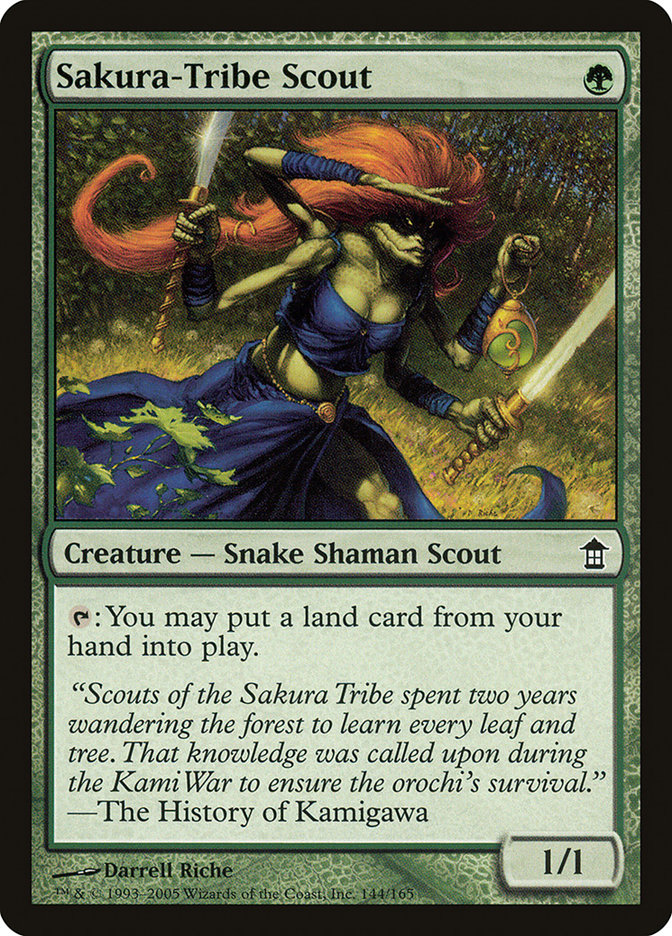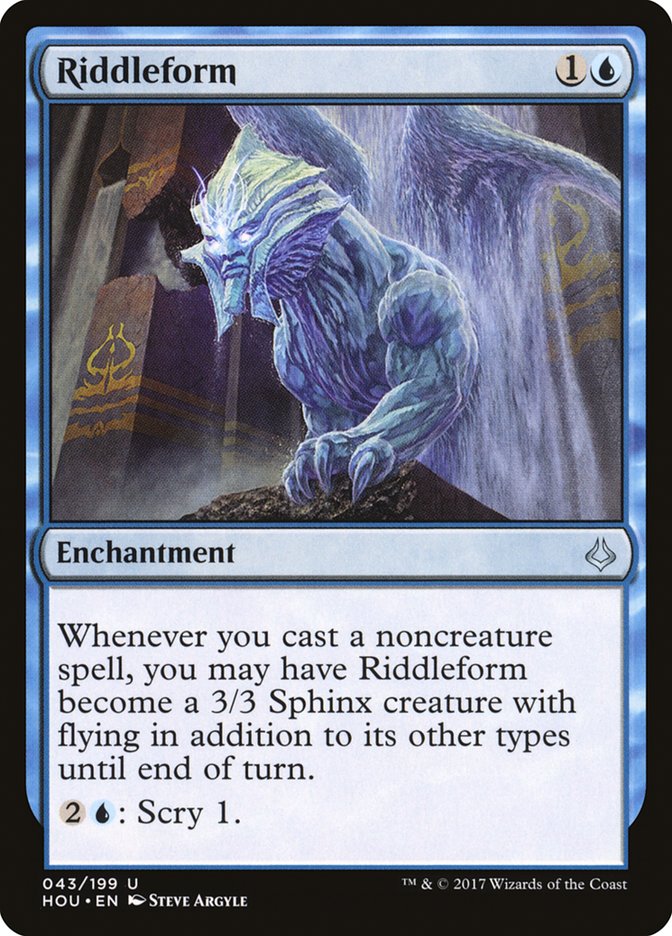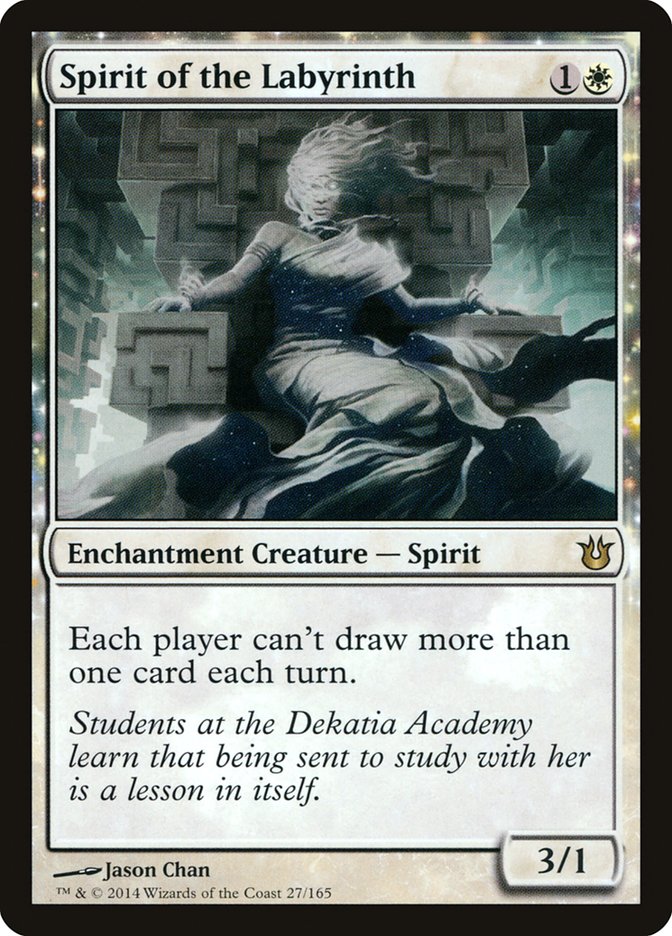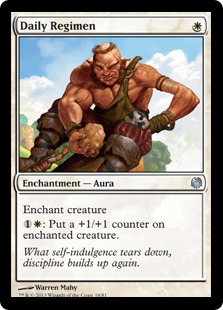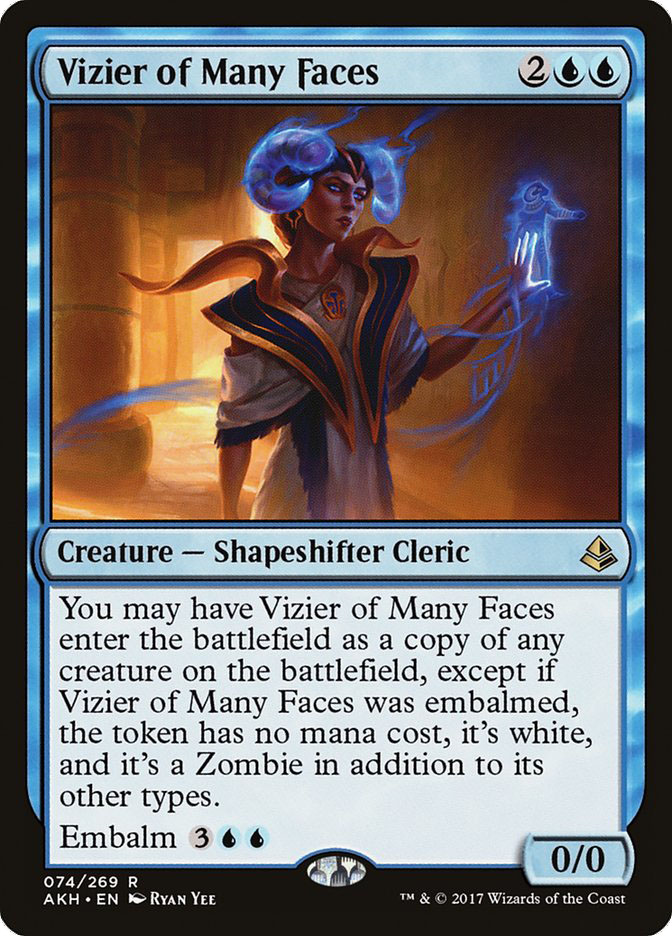Everyone’s heard “practice makes perfect.” Most people, I’d guess, have heard the corollary/counterpoint, “Practice does not make perfect; only perfect practice makes perfect,” a quote Google wants to attribute to Vince Lombardi, though I think I might’ve across it in college when studying Aristotle. Regardless, the point is that merely putting in hours can potentially just reinforce bad habits, or at the very least, that it’s likely not the most efficient or effective way to improve.
I’ll often talk to someone about their preparation or people they’ve worked with, and they’ll complain that people they test with don’t know how to test. Usually they’ll add something like, “They just want to play brews against each other.”
As a brewer myself, I certainly get this. I often just want to play the deck I’m working on, and I don’t really care what I play it against: “I just want to see how the deck plays out.” This isn’t wrong; I’ll often just be trying to figure out if a new deck I’ve build is fundamentally functional, so I don’t really care what I play it against. Sometimes, I’ll want to play two of my decks against each other to more quickly test the basic functionality of each of them and just learn about more different cards, especially when testing with a new set.
If your time is any more limited than mine, you should definitely avoid this. Honestly, I should avoid it too. Too often I’ll put way too much work into a deck before playing it against an established good deck and realizing that it’s nowhere near competitive. There really is a reason people talk about establishing a gauntlet and testing against those decks.
Okay, look, I know, “test against established decks” is about as new and insightful as “try to play against opponents who are better than you.” There’s more to this, but we need to cover the fundamentals.
Whenever I test with a new group, there are a lot of basic practices we need to go over: “How are we mulliganing?” “Should I play like I know your exact list?” “Are we sideboarding?” These questions need to be raised every time because there isn’t a best answer to any of them.
If you don’t use the same mulligan rules you would in a tournament, an inconsistent deck might overperform if you just throw unworkable hands back until you have a good one. At the same time, you don’t really learn much from playing a five-card hand against a seven-card hand. My default is generally to go to six without a scry rather than five with a scry for the second mulligan, and probably six again after that, but if it happened a lot, I’d definitely look to change something in the deck that needed to mulligan that much.
“Should I play like I know your exact list?” is a really tricky one. It’s really dangerous to tell someone to play in any way besides trying to do everything they can to win the game, because it opens the door for, “Well, I think most people would attack with everything here, but I know you’re playing four copies Settle the Wreckage, so I wouldn’t, but I’ll play like I don’t know and attack with everything.” In reality, most opponents would be able to figure out that attacking into 2WW isn’t a great idea regardless of whether they knew your list.
It’s probably best to avoid turning Magic into a roleplaying game and to instead focus on trying to win. Maybe if you’re 100% certain you’d keep a hand against an unknown opponent, but not against your opponent’s deck, you could keep instead of mulliganing to simulate an average opponent drawing that hand, but then you’re still not testing for scouting or them otherwise knowing what you’re playing, which might happen in a tournament.
The counterargument is that when I play a new deck that people haven’t seen before, or substantially modify an existing deck in a way that tries to exploit a specific assumption my opponents will have, I expect to get something out of that, and if I only test against people who know what I’m doing and play accordingly, I have no way to knowing how valuable my deception will be.
Honestly, this is why I like to do a lot of my testing on Magic Online. I get to play against real people who presumably know their deck reasonably and are trying their best to beat me with all of the information available to them, but only have the information I can expect my opponents in a tournament to have. A lot of pros complain that the level of competition isn’t high enough, but I find that even if my opponent plays badly, I still learn what kind of mistakes people are capable of making against me, which I think is important to know, especially for spots where I’m losing but can potentially play to an out if my opponent makes a mistake. I want to know what kind of mistake I’m most likely to be able to play for.
Sideboarding in playtesting is a real sticking point. Everyone agrees that testing sideboards is extremely important. They can massively swing a matchup, and one of the most useful things you can learn about a matchup is how to sideboard and which cards you’ll need access to. The problem is that the sideboard is usually the most flexible part of a deck, so you often won’t know exactly what you’ll ultimately have in it for most of the testing process. It also runs even more strongly into the information issue: should your opponent sideboard and play as if they know about your transformative sideboard plan? Ideally not, but again, how much roleplaying is it safe to do? What if most opponents would know that it’s possible and hedge against it? How much should you hedge?
Notice that I’m raising more questions than I’m answering. That’s the point.
In the past, I was always worried about getting enough games in before a big tournament. I wanted to feel like I knew my deck well, seeking familiarity with things like knowing how my opening hands or turns might look, and having an idea of how I could expect a game to play out depending on what I kept…general things like that, where it doesn’t really matter what your opponent’s playing.
This year, I’ve often found myself needing to play good decks that I didn’t have a hand in. Standard’s been imbalanced enough that the best things are clearly the best by a wide enough margin that other strategies can’t really compete. As I’ve written about, I still always try to find something else competitive, and the result has been that I haven’t been able to get a lot of games in with the deck that I ultimately end up playing. This has forced me to consolidate my testing and figure out what I really need to know, which leads me to the crux of the issue I want to discuss.
You need to know what your goals are when testing. Are you trying to choose a deck? Are you trying to learn how a deck works? Are you trying to figure out how to play a deck, or a specific matchup? Are you trying to tune a deck? Is there a specific card you’re wondering about? Once you know exactly what you’re trying to learn, it’s a lot easier to use testing to figure it out.
For me, once I know what deck I’m going to play, and I’m trying to play catch-up on preparing to play it in an important tournament, I need to figure out what the hard questions the deck will be asking me are. In that situation, play some games and look for spots where you’re not entirely sure what you should be doing. When you’re playing, think about which plays you’d ask someone about if you could, and which you’re sure are correct. Even if someone isn’t around, make note of the things you’d ask, and try to discuss them with someone later.
Once I’ve figured out what questions I have, and which hard decisions I’ll need to make in most games, I want to make sure I understand what each of the major matchups are fundamentally about, what my sideboard plans are, and, most importantly, what the reasoning behind each of those plans is.
Once I understand what I need to know, I can often minimize how much testing is really required, which I think is very much the goal for most hobbyists, and why sideboarding guides are so popular. In practice, I’ve really concluded that I simply don’t need as much testing as I used to believe, as long as I can ask the right questions and I know people who know the answers. And that’s just it: often, there isn’t someone available you trust to know the answers, and that’s where you have to do the work yourself, and that’s where knowing how to do the work and, more precisely, thinking about it and forming a plan for how to do the work is so important.
So, let’s consider some examples.
Imagine you’re preparing for a Modern tournament. You know Storm and Ad Nauseam are fundamentally powerful fast combo decks, and, following Tron’s success at Grand Prix Oklahoma City, you want to play fast combo in your next event. You already have some familiarity with both decks, which is how you’ve narrowed it down to those two and why you’re considering them on short notice, but Tron maybe wasn’t the focus the last time you played them. You’re concerned about figuring out which deck is better against Tron, or maybe Tron and TitanShift, and you’re also concerned about figuring out how they can beat you and what you need to worry about, and whether you’ll need any sideboard cards specifically for that matchup.
Now, you know that you want to play both decks against the big mana decks specifically, and you want to play until you lose some games and figure out what can happen to make you lose. Are you losing to a specific card, like Relic of Progenitus? Is it just their Turn 3 Karn Liberated draws that are threatening? Would it be worth having a card like Disdainful Stroke in your sideboard, or are you better off focusing entirely on your Plan A?
Maybe you have a Standard tournament coming up and you know that you want to play an Attune with Aether deck, and you’re trying to decide if you want to splash for black. You expect the mirror to be the most important matchup, and you believe black cards help you there, but you’re concerned that they hurt against Ramunap Red, which you expect to be 15-20% of the field. You know that there are other ways you can hedge; you could play Vizier of Many Faces instead of Chandra, Torch of Defiance or Bristling Hydra to help in the mirror, and you like that Vizier can also help beating Hazoret the Fervent, but you’re concerned about the 10% or so of the field you might expect to be playing control decks, where Vizier of Many Faces would be a liability.
This is quickly becoming a lot to test, but you know Vizier will be bad against control, yet that’s a pretty small concern, so you decide that what you need to figure out is how good Vizier is relative to the black splash. So, the first question is, since these are both fundamentally Temur decks, is it most efficient to just play them against each other, or is it better to play both against what you consider to be “stock Temur?”
If you have the time, I’d guess playing both against the stock list is the better solution, but the point is more to ask the question than what the answer is.
I decided to write this because I was thinking about a “year in review” sort of piece that went over what I’ve learned about Magic this year, and I realized that the common theme has been…well, I guess another old saying for it is the value of “working smart” over “working hard.” Figure out what you don’t know that will actually impact the outcome of your matches, and figure out how you can most efficiently learn the answers to those questions.



